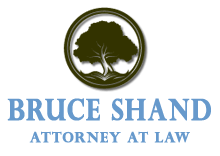Revoking the Irrevocable (Trust)
Here’s a dirty little secret: It’s often possible to terminate a supposedly “irrevocable” trust.
What can you do when your estate plan includes something as permanent as an irrevocable trust that no longer serves its purpose?
Fortunately, Forbes recently considered this question in an article aptly titled “How To Kill An Irrevocable Trust.”
Historically, irrevocable trusts have been pretty useful legal tools, especially for estate tax planning. While over time the trusts have changed very little, the same cannot be said for the estate tax laws. Now, and perhaps forever more if Congress doesn’t undo the American Taxpayer Relief Act of 2012 (ATRA), an individual can exempt $5.25 million from their estate or pass that exemption on to their spouse.
Back in the day, things were not always so generous. Many married couples had “bypass trusts” which are “irrevocable trusts” established upon the death of the first spouse to secure the estate tax exemption available to the estate of the deceased spouse. Since many estates of the surviving spouses who are beneficiaries of these bypass trusts will be well below the $5.25 million exemption, even counting the bypass trust asset values, some may want to consider revoking the bypass trusts. Arguably, this could simplify life for the surviving spouse.
Another form of irrevocable trusts was one established to own life insurance “outside” of the estate of the insured. These were established for myriad reasons, to include providing estate liquidity for estate taxes and business succession planning. Again, if the primary motivation for creating these irrevocable trusts was estate tax driven, then perhaps revoking the irrevocable trusts is an option for simplicity.
The original article speaks to some of the mechanics required to revoke the irrevocable.
Is it a good idea for you to kill your trust? That depends a great deal on the trust and on you, not to mention state law. In fact, trusts are such powerful devices that many are still choosing to create them, ATRA or not. It’s a cost-benefit analysis, so do take care to think of the benefits.
For more information about irrevocable trusts please visit my estate planning website.
Reference: Forbes (June 5, 2013) “How To Kill An Irrevocable Trust






